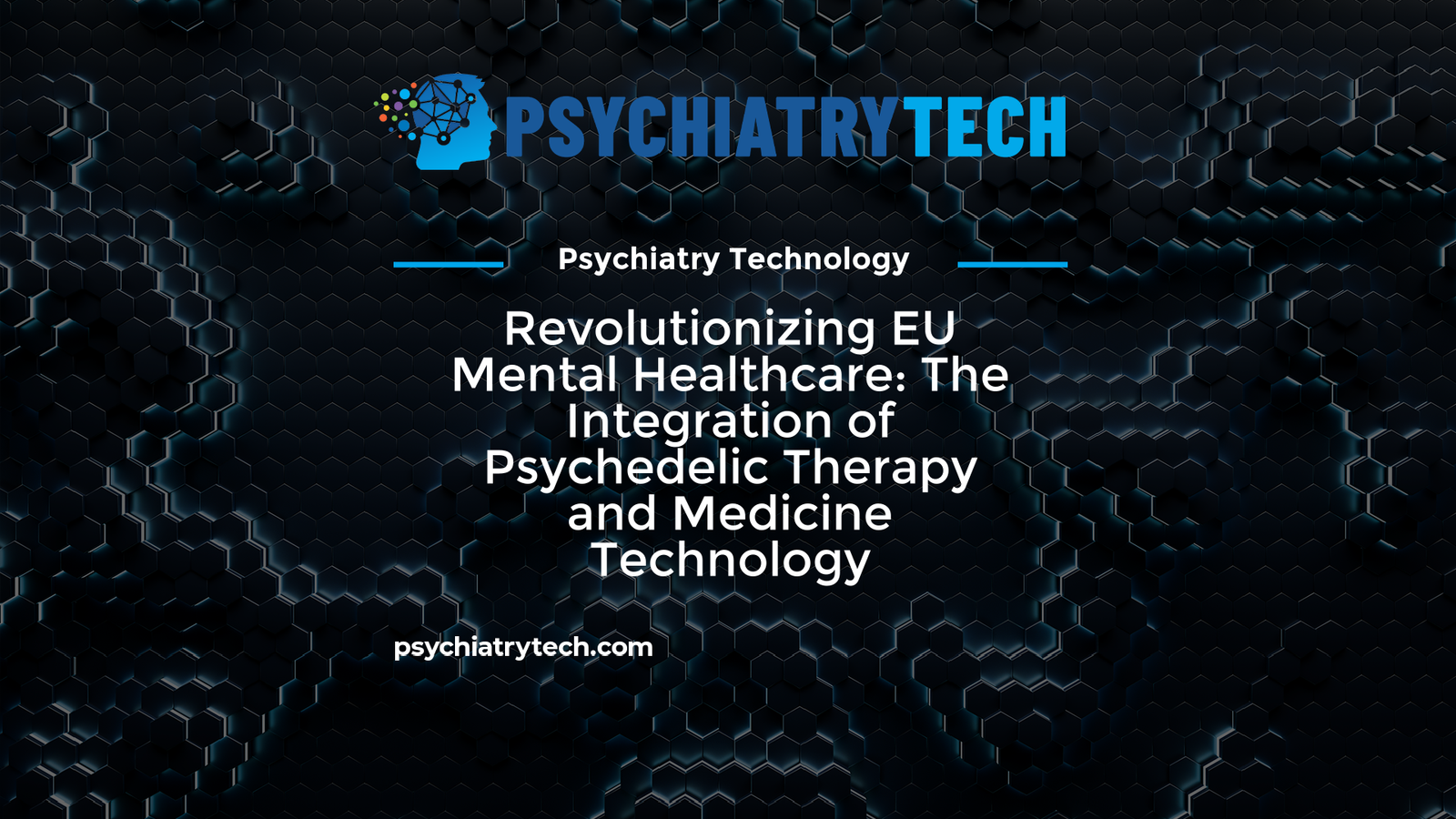Revolutionizing EU Mental Healthcare: The Integration of Psychedelic Therapy and Medicine Technology
Psychedelic therapy and medicine technology have been making significant progress in terms of advancements and integration in mental healthcare in the European Union (EU). This integration is bridging the gap in innovation and support needed to improve patient outcomes and overcome the challenges of mental health disorders.

Discover The World's MOST COMPREHENSIVE Mental Health Assessment Platform
Efficiently assess your patients for 80+ possible conditions with a single dynamic, intuitive mental health assessment. As low as $12 per patient per year.
Psychedelic-assisted therapy
The collective anxiety and stress that the COVID-19 pandemic brought to people’s lives have pushed mental health to the forefront of everyone’s minds. While traditional therapies have been available, there are emerging alternatives such as psychedelic-assisted therapy. It is a therapeutic approach that combines traditional psychotherapy with a non-ordinary state of consciousness facilitated by psychedelic substances such as psilocybin, ketamine, and MDMA.
Research in the field of psychedelic therapy has shown significant potential in treating depression, anxiety, PTSD, addiction, and end-of-life distress, among others. The integration of psychedelic-assisted therapy in the EU’s mental health care system is a significant step towards accessible and reliable treatment for these disorders.
The evidence-based approach to psychedelic medicine
The use of psychedelic medicine, also known as psychoactive drugs, has been a controversial topic for years. However, the shift in perception towards psychedelic substances’ efficacy in treating mental health disorders has reconciled their use as a legitimate therapeutic practice.
Psychedelic medicine has caught the attention of the scientific community, advocating for its potential role in treating mental health disorders and its benefits in patient outcomes. The EU, along with other countries, has paved the way for the widespread integration of psychedelic medicine into mental healthcare with its evidence-based approach in research and development.
The integration of technology in mental healthcare
The ever-evolving technology industry has also revolutionized the mental health field. With the increase in internet usage, therapy services are now accessible to anyone, anywhere, anytime. Moreover, technology-enabled approaches have also emerged, such as the use of virtual and augmented reality in therapy sessions.
The European Union has shown a strong commitment to mental health innovation by providing funding and support for technology-enabled therapy services and digital solutions. These developments have significantly aided mental illness prevention, diagnosis, and treatment, as well as supporting research in the effectiveness of technological interventions.
An exciting future ahead
The integration of psychedelic therapy and medicine technology into mental healthcare in the EU is an exciting future ahead for the mental health field. This integrated approach offers a complete and effective solution to tackle the growing incidence of mental health disorders.
It is essential to note that psychedelic medicine and assisted-therapy are not a one-size-fits-all solution and that it may not be appropriate for everyone. It is crucial to work with a qualified medical professional to ensure its safe and effective use. In addition, technology-enabled approaches to therapy are not a substitute for professional treatment and should only be used under supervision.
Final thoughts
The integration of psychedelic therapy, medicine, and technology into mental healthcare provides hope for both mental healthcare providers and patients. The EU’s commitment to innovation and evidence-based approach highlights its dedication to improving mental health outcomes and overcoming the challenges of mental health disorders.
As the field continues to evolve and grow, it is crucial to keep an open mind and approach. With advancements in research and technology, the opportunity to improve mental health outcomes is within reach. We encourage both mental health professionals and technology enthusiasts to continue exploring, sharing knowledge, and advocating for innovative solutions.
Join us in promoting mental health awareness and share this article with your network. Together, we can improve access to mental healthcare and empower those struggling with mental health disorders.

